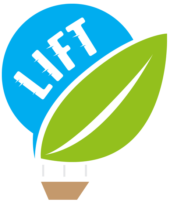To meet this goal, LIFT will pursue the following scientific and technical objectives:
1. To investigate the socio-economic and policy drivers that hinder or enhance the development and adoption of ecological approaches to farming, by:
- Assessing the endogenous determinants of adoption, including farmers’ profiles, attitudes and behaviour, and structural farm drivers
- Assessing the economic and social incentives provided by other actors in the value chain, in particular neighbouring farmers, input suppliers, processing industries, agricultural or machinery cooperatives and consumers, and provided through contracts and policy environment
- Developing and testing a novel theoretical farm typology framework to understand the specificities of various ecological farming systems in order to enable comprehensive, consistent and standardized analyses in the project and future research
2. To evaluate and compare the performance and overall sustainability of farming systems across different levels of incorporation of ecological approaches and across different scales (from farms to territories), by:
- Defining, collating and testing performance indicators related to all dimensions (economic, environment, social), separately and in combination, to be applied at farm, farm-group and territorial levels
- Measuring and comparing performance with these indicators, across the farming systems identified by existing nomenclatures and by LIFT novel typology for different production sectors and strategies, and across the range of scales, from farm to territorial level
- Assessing the overall sustainability of ecological approaches based on scale-tailored sustainability criteria developed through comprehensive consultations with and feedback from a wide range of stakeholders
3. To propose new private arrangements and new policy instruments which could improve performance and sustainability, and the development of ecological agriculture, by:
- Identifying the best practise in private arrangements and/or policy instruments and adapting them to other cases that differ in terms of g. institutional or regional context, or production sector
- Reflecting on the limits and flexibilities of the current EU policies and World Trade Organisation (WTO) rules
- Designing innovative private arrangements and policy instruments
4. To produce comprehensive insights into ecological approaches based on a wide range of case studies and a mix of relevant methodologies (qualitative, quantitative, participatory approaches, modelling) and actors (scientists and a wide range of stakeholders).
5. To achieve targeted dissemination of results with free decision support tools and a massive open online course (MOOC), and reach out to students, policy makers and farm advisory services.


